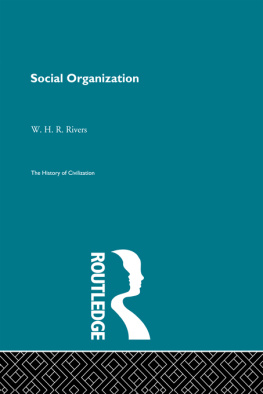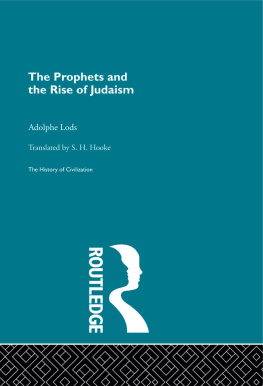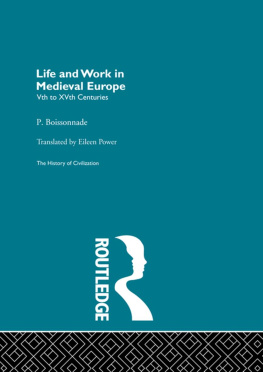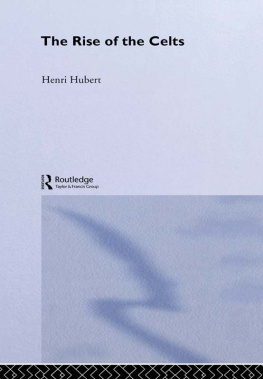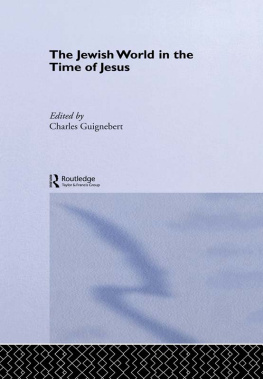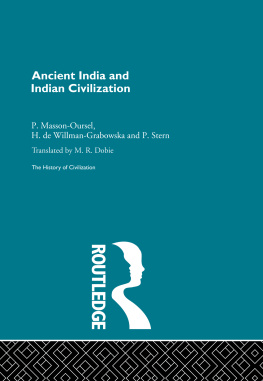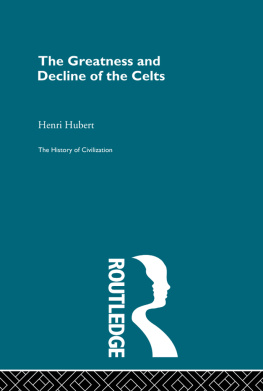THE HISTORY OF CIVILIZATION
THE HISTORY OF
MEDICINE
THE HISTORY OF CIVILIZATION
General Editor C. K. Ogden
The History of Civilization is a landmark in early twentieth Century publishing. The aim of the general editor, C. K. Ogden, was to summarise in one comprehensive synthesis the most recent findings and theories of historians, anthropologists, archaeologists, sociologists and all conscientious students of civilization. The History, which includes titles in the French series LEvolution de lHumanit, was published at a formative time in the development of the social sciences, and during a period of significant historical discoveries.
A list of the titles in the series can be found at the end of this book.
HIPPOCRATES
A composite portrait designed from a study of ancient medals and coins, by the Swiss artist, the late Albert Anker.
Reproduced by the kind permission of Dr. Charles Du Bois, of Geneva
[front.

First published in 1926 by Routledge, Trench, Trubner
Reprinted in 1996, 1998 by Routledge
2 Park Square, Milton Park,
Abingdon, Oxon, OX14 4RN
&
270 Madison Ave,
New York NY 10016
Transferred to Digital Printing 2008
1996 Routledge
All rights reserved. No part of this book may be reprinted or utilized in any form or by any means electronic, mechanical, or other means, now known or hereafter invented, including photocopying and recording, in any information storage or retrieval system, without permission in writing from the publishers.
British Cataloguing in Publication Data
ISBN: 0-415-15569-X
ISBN Pre-history (12 volume set): 0-415-15611-4
ISBN History of Civilization (50 volume set): 0-415-14380-2
ISBN 978-1-136-19425-2 (ePub)
Publishers Note
The publisher has gone to great lengths to ensure the quality of this reprint but points out that some imperfections in the original may be apparent
THIS BOOK IS DEDICATED
WITH DEEP AFFECTION
TO MY WIFE AND MY SISTER.
C. G. C.
The little present must not be
allowed wholly to elbow the
great past out of view.
ANDREW LANG.
T
HIS book has been written for the general reader and as an introduction for the student of medicine to the history of his chosen profession. The contents are a compilation of what the writer considers the most reliable and essential contributions to the subject, and, apart from some gleanings from his personal researches which are scattered throughout the pages, no claim is made to originality. Yet an attempt has been made to include matter not found in other works on the history of medicine in order that a clear concept may be obtained of the evolution of the healing art, while all unnecessary detail has been carefully avoided.
To save the reader trouble, only such references to literature as are considered necessary are made in the body of the text.
The authors deepest gratitude is due to his friend, F. G. Crookshank, M.D., F.R.C.P., of London, for revising the text, and his sincere thanks to Miss Bremner for her valuable help in the preparation of the manuscript.
And last, but not least, the authors profound thanks are due to Mr. M. R. Dobie for correcting the proofs and indexing the book.
Geneva.
1st May, 1926.
THE RELATION OF HISTORY AND PHILOSOPHY TO MEDICINE
W
HILST the successful, nay, the competent practice of Medicinean Art which includes that of Surgerymay be, and often is, compatible with ignorance of the History of Medicine, he is the best physician in the classical and fullest sense of the word who unites a mastery of his Art to an intimate acquaintance with the great historical doctrines and the philosophies on which they are based.
In default of a Philosophy of Medicine there can indeed be no true Science of Medicine, and it is because the History of Medicine is now too often regarded as but a pleasant bypath, in which the amiable dilettante on whom practice makes no too exacting claim may stray, that Pathology the true Science of Medicineno longer exists, and that the word itself is accorded a significance by whose virtue is digged deeper, and ever deeper still, the gulf that separates the pathologist from the bedside.
Since too, for Medicine, Philosophy and History are no less concretely united than Croce finds them to be for all other departments of knowledge, without History Medicine may only be scientific in the modern, or journalistic sense of the worda sense imputing little beyond the possession of some attractive form of technical precision. That is to say, the art of the practitioner may be implemented by the exercise of technical procedures that have become more or less rationalized by appeal to what are called the auxiliary sciencesanatomy, physiology, chemistry, and physicswhile, in default of proper first principles pertaining to Pathology, discussion may be assisted by reference to the principles of these sciences.
But this sort of thing, even if making Medicine scientific from the point of view and for the purposes of journalism and subsidized research , does not constitute a Science of Medicine.
And so it is that the modern but really uncultured, though not altogether untaught, student of Medicine leaves the study of biology, chemistry, physics, anatomy and physiology disciplines relating to defined fields of knowledge by and in which facts are resumed in stated generalizations, and observations are interpreted in respect of certain first principlesto approach the study of Medicine itself without any enquiry into the foundations of Science, and without the slightest hint that the diseases which he is about to learn to cure or investigate are other than natural objects of perception. Far less is he afforded any information as to the views once heldbefore the advent of the bacteriological dispensation now drawing to a closein respect of the nature of disease and diseases unless in a sentence accompanied by the sneer of ignorance or the snigger of self-sufficiency. Small wonder, then, that the qualified man enters upon the practical business of his life no less ill-equipped for profitable research, or for intellectual expansion and re-adjustment, than would be a taxi-driver, licensed for the Metropolitan area, competent to conduct an expedition across Central Arabia or the desert of Gobi.
It is by reason of this neglect, in official Medicine, of all study of History and Philosophy that, in presidential orations and the like exercises, it is still asked whether Medicine be a Science or an Art, and the dismal response is still given that the question may not profitably be discussed since it is one that cannot be answered. Nothing but the familiar reply could well be more fatuous than this familiar question !
Undoubtedly, there is an Art of Medicine : an Art, that is, in the sense of Sir Sidney Colvins celebrated statement that every regulated operation or dexterity by which organized beings pursue ends which they know beforehand, together with the rules and the result of every such operation or dexterity, constitutes an Art. Certes, there is such an Art of Medicine : one which, in Harveys words, is a habit with reference to things


